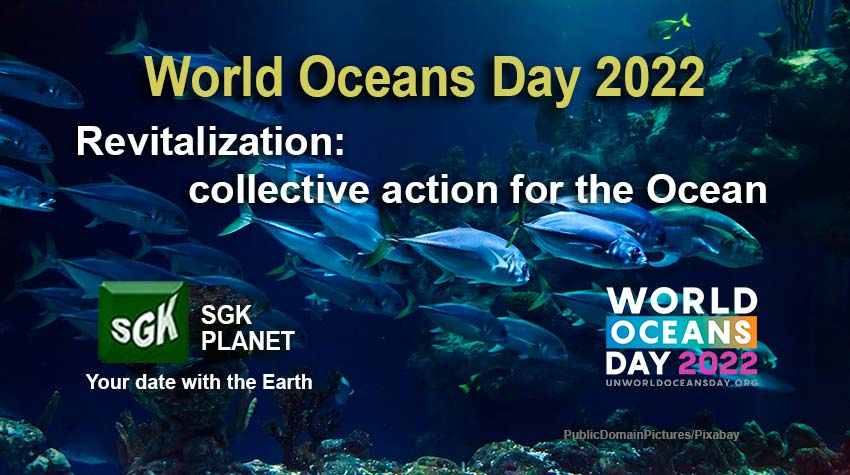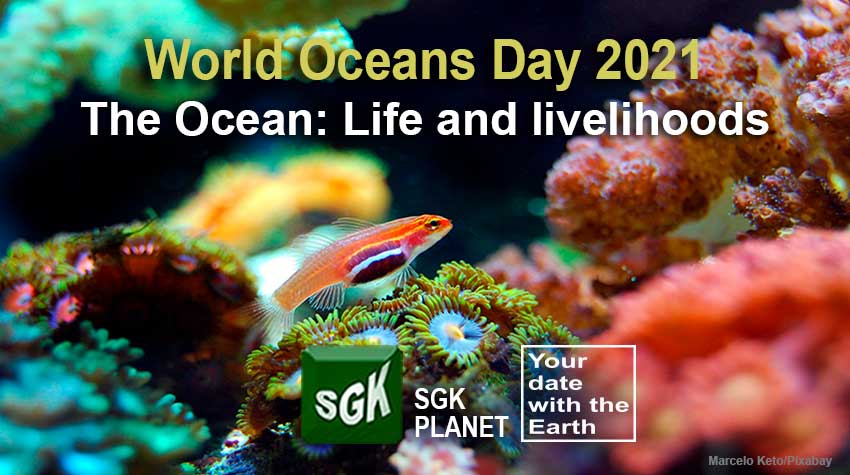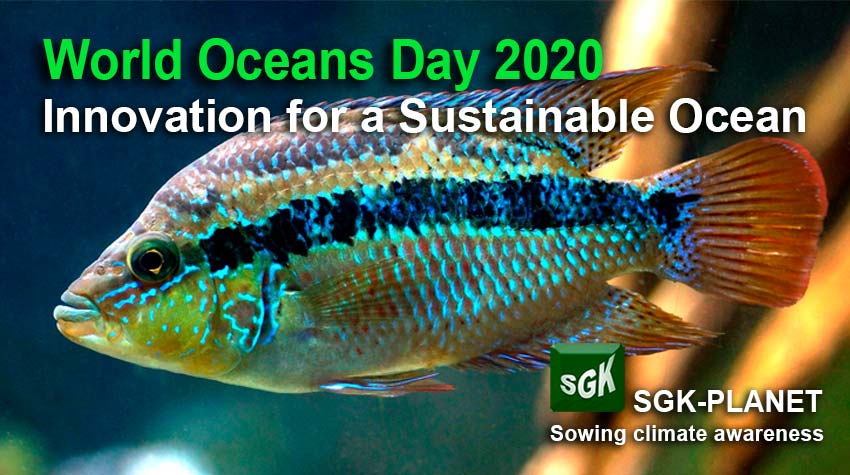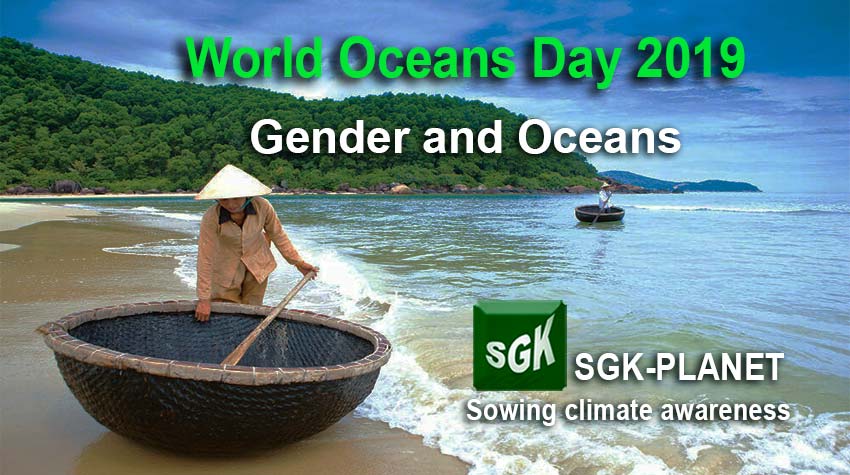FAQs about Oceans
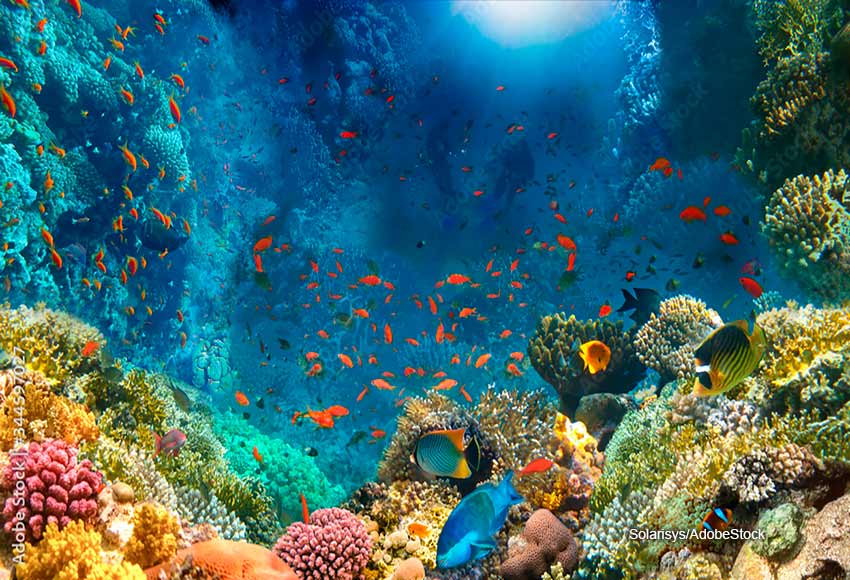
10. What can we do to protect our oceans?
According to recommendations from an article titled “10 things you can do to save the oceans”, from National Geographic we can see:
- Reduce CO2 emissions and energy consumption. You can reduce the effects of climate change on the ocean by leaving your car at home when you can. You have to be aware of your energy consumption at home and at work and try to reduce it. Switching to compact fluorescent light bulbs and using the stairs are simple things to start with.
- Make safe and sustainable purchases of fish. World fish stocks are rapidly being depleted due to demand, habitat loss and unsustainable fishing practices. When shopping or dining out, help reduce demand for these overexploited species by choosing healthy and sustainable products.
- Use fewer plastic products. Plastics that end up as litter in the sea contribute to the destruction of habitats and can kill thousands of marine animals each year. To limit its impact, we can reuse water bottles, store food in non-disposable containers, use cloth bags to transport our purchases. Basically, it’s about recycling as much as possible.
- Help take care of the beaches. If you like diving, surfing, or relaxing on the beach, we will try to leave the place picked up once we leave the beach. We will also try to encourage as many people as we can to respect the marine environment and make them part of it.
- Do not buy products that take advantage of Marine Life. Some products contribute to the damage of fragile coral reefs and marine populations. Avoid buying items such as coral jewelry, hair accessories made from shells (made from hawksbill sea turtles), and shark products.
- Friend of the sea. Try to be careful with the food from the sea that we give to our pets. Let’s read the labels of the products and consider their sustainability when buying them. Avoid buying wild-caught saltwater fish for an aquarium or dumping fish or other aquarium-raised marine species into the sea, as this practice can introduce non-native species that are detrimental to the existing ecosystem.
- Support organizations that work to protect the Sea. Many institutes and organizations are fighting to protect marine habitats and marine fauna. Find a national organization and consider financial or volunteer support for practical or promotional work.
- Influence change in your community. Do research about ocean politics with public officials before elections or contact your local representatives to let them know you support marine conservation projects. Consider charitable restaurants and grocery stores that offer only sustainable seafood.
- Travel by sea responsibly. If you practice sports such as kayaking or other activities that take place on the water, do not throw anything overboard and be aware of the marine life that inhabits the waters around you. If you’re planning to cruise for your next vacation, choose the option that’s more environmentally friendly.
- Learn about the oceans and marine life. All life on Earth is connected to the ocean and its inhabitants. The more informed you are about the issues facing this vital system, the more you’ll want to help ensure its protection and inspire others to do the same.
FAQs about Oceans
1. What are the earth’s oceans and what is their importance?
2. Are the oceans lungs of the Earth?
3. How many marine species are there, and which ones are in danger?
4. How does global warming affect the oceans?
5. What is acidification and how does it affect the oceans?
6. What is overfishing and what consequences does it have for the oceans?
7. What are the main pollutants in the oceans?
8. How do plastics affect the oceans?
Other Secctions of the Oceans
Articles
Revitalization: collective action for the ocean. World Oceans Day 2022
On June 8 we celebrate World Oceans Day 2022, this year framed in the UN Decade of Ocean Sciences and within which the Conference of the Oceans. The theme of 2022 Revitalization: Collective Action for the Ocean wants this year to emphasize the greatness of the ocean as a source of life for all human beings and for all other organisms that inhabit the Earth.
Our planet Earth is also known as the blue planet because more than 70% of its surface is covered by the waters of oceans and seas, which gives it its distinctive color. These huge bodies of water are essential for life as they provide us with food, as well as being important regulators of climate change and generators of most of the oxygen we breathe.
World Oceans Day was proposed during the Earth Summit in Rio de Janeiro, 1992, although it was only implemented in 2008. Since then, World Oceans Day is celebrated on June 8 of each year, by resolution of the General Assembly of the UN. Its objective is to raise awareness about the importance of the oceans and how to preserve them. This year the UN has chosen two reasons to celebrate World Oceans Day.

